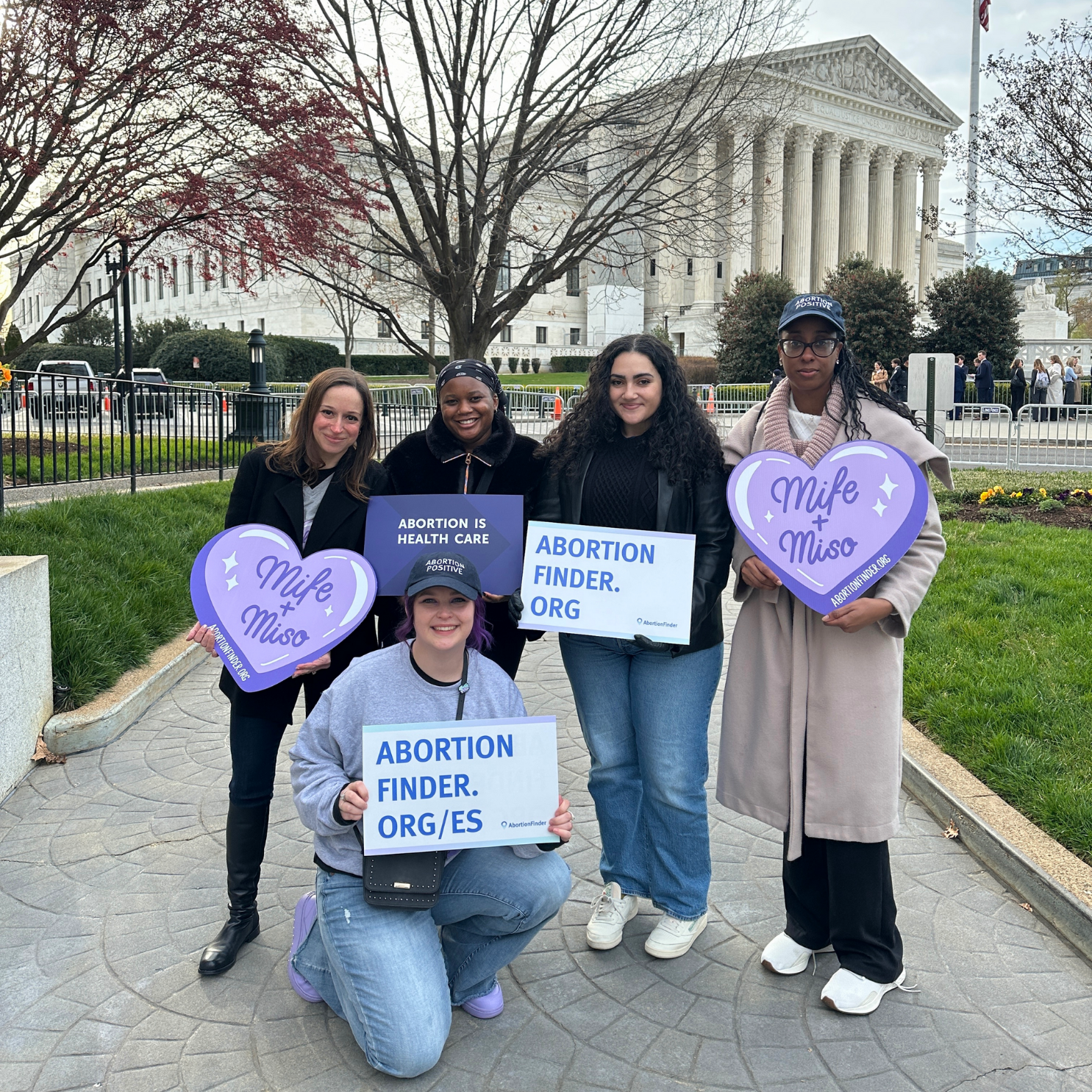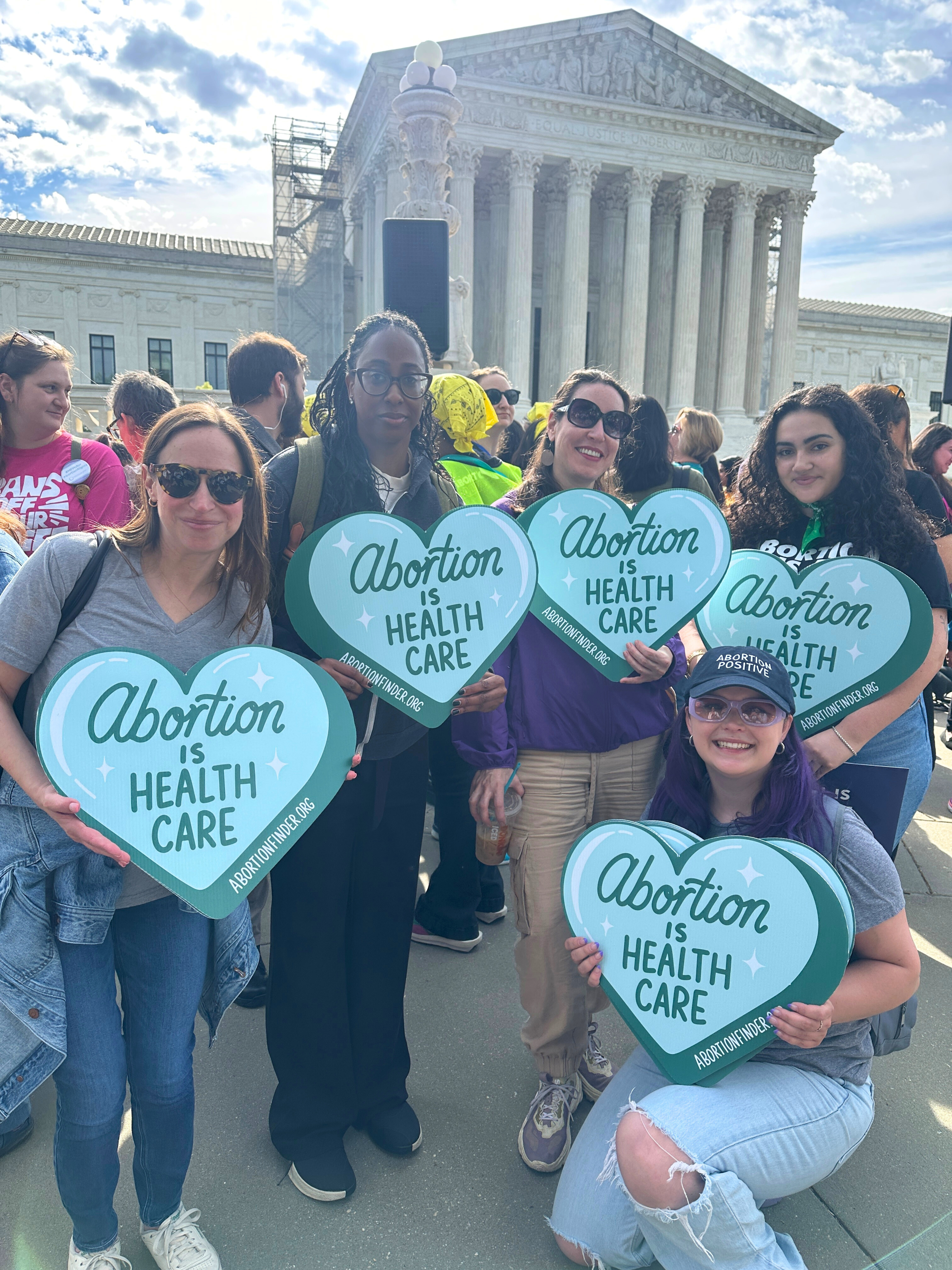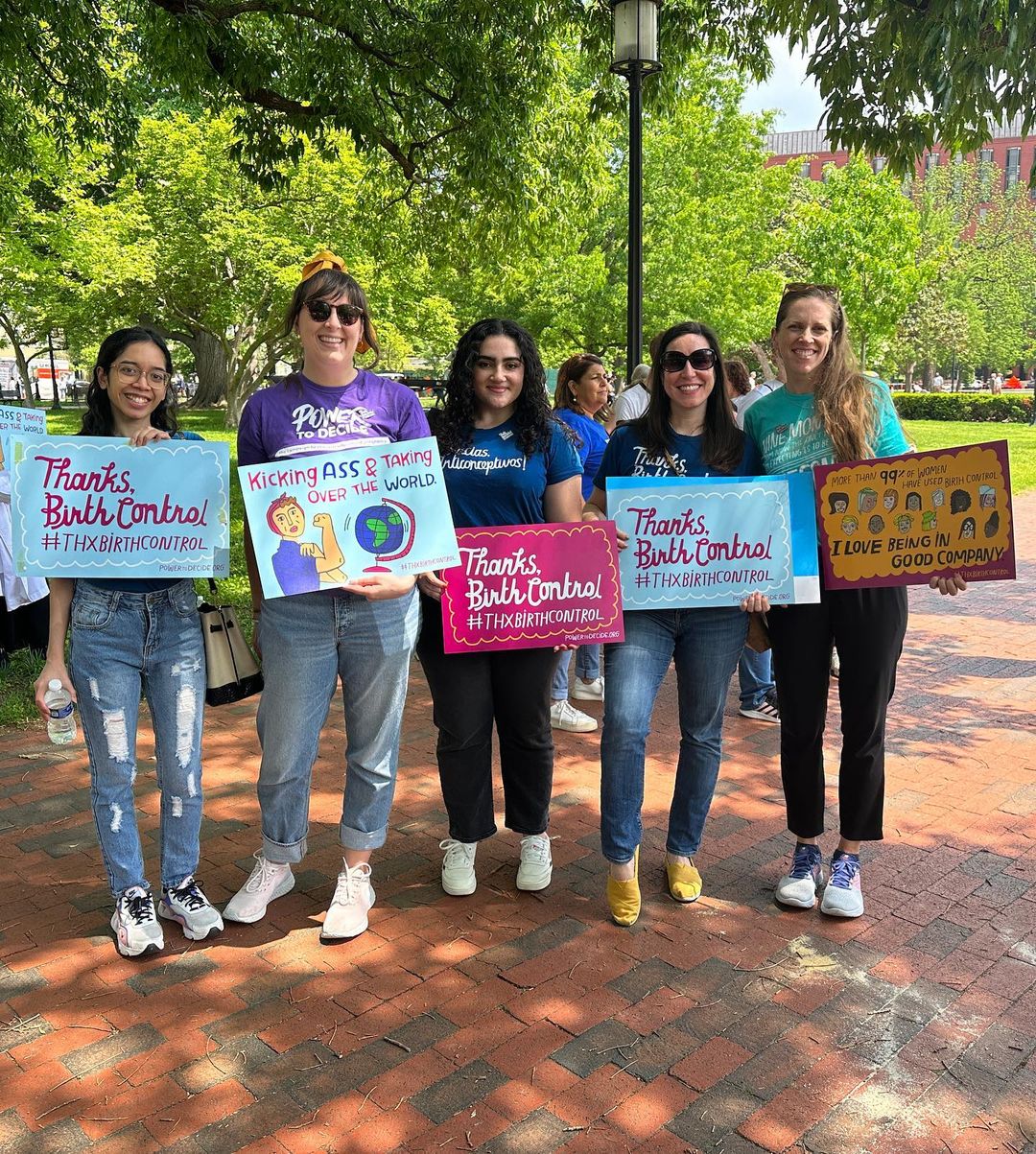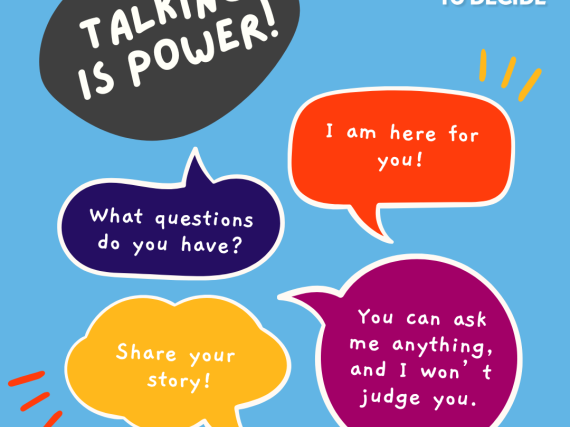Why Does Speaking Up Matter?
Sometimes we talk about important topics such as birth control, sex, or abortion in small ways; we sit down with loved ones to open conversations about our experiences, we share information we’ve learned on the subjects with friends, or we post on our social medias to show that we agree with a cause. But we can also talk in big ways by showing up and joining others at rallies or protests. Both are valid, and both serve a purpose in building a future where everyone—no matter who they are or where they live—has access to the fact-based information they need to make informed decisions for their future.
Over the last year Power to Decide has participated in several rallies in Washington DC fighting back against abortion restrictions and supporting increased birth control access. For generations our nation has used public protest as one of its most powerful tools to inspire necessary changes, reduce inequity, and confront a history of racism and bias. We attend protest events to add our voice to the many others calling for the protection of reproductive rights. By doing so we hope to generate a sense of action in others and encourage folks to join us in calling for reproductive well-being for all.

As attacks on reproductive freedom continue to rise, it's now more important than ever to do everything we can to ensure that all young people have the tools they need to make decisions that align with the future they see for themselves. Attending a protest or a rally near home can show young people that they’re not alone and aren’t powerless to effect change. The passion it can spark in young people may make them more interested in talking to trusted adults in their lives about sexual health and learning what reproductive well-being means for them. A protest can also become the inspiration they need to continue fighting for issues that they believe in even as they grow up.

Young folks need champions in their lives who can help guide them on that journey without judgment. A positive experience at a protest with someone they trust shouldn’t end once they leave. After taking time to digest the experience champions sit down and talk about how it felt to publicly support (or protest) an issue. Some questions champions could ask to kick off the discussion are:
- What feelings did you have at the start of the event? Did they change the longer we were there? How did you feel at the end?
- Did you see any signs that resonated with you?
- What impact do you hope the event will have on our immediate future? How about on the long-term future?
- Would you like to attend another event (on this issue or any other)?
As the conversation deepens, it can also morph into discussions of other, broader, subjects such as reproductive and sexual health. Consider asking:
- How do you think protests can positively influence people? How about society? Government?
- What have you seen in the news about this issue?
- Have you seen your friends posting or heard them talking about any protests?
- Have your friends discussed anything that you have questions about?
Remember, it never needs to be one big talk, but an ongoing dialogue with subjects that shift as a young person grows. We have plenty of other questions to inspire further discussions as part of our #TalkingIsPower campaign.



